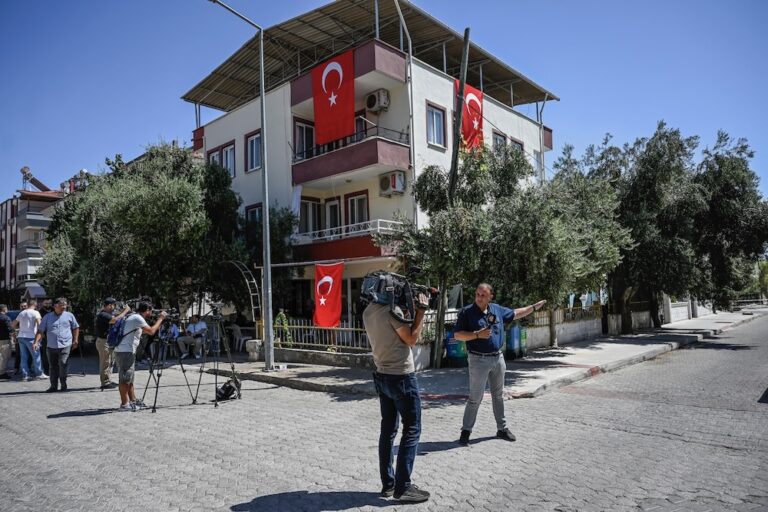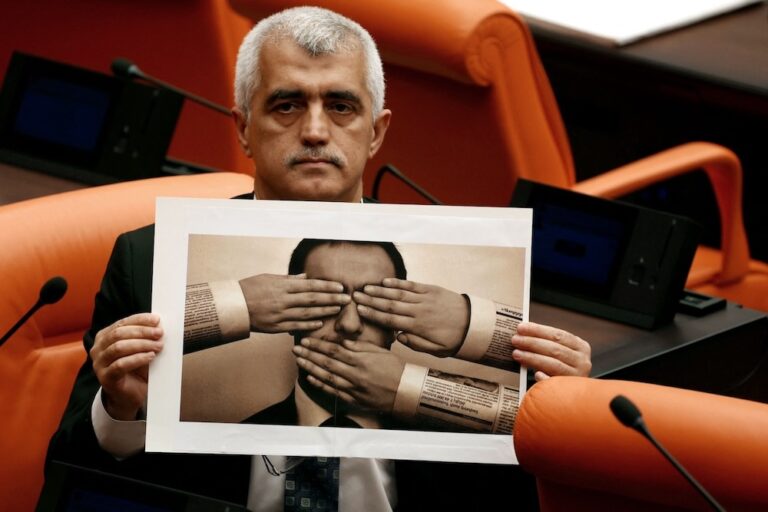The Court ruled that Turkey had violated freedom of speech laws when it suspended five newspapers and sentenced a magazine editor to prison.
Turkish IPI Board member calls for abolishment of repressive laws
(IPI/IFEX) – VIENNA, 28 January 2010 – The European Court of Human Rights has ordered Turkey to pay a total of over 40,000 Euros to 20 Turkish journalists as compensation for having violated their rights.
In two separate cases, the Court ruled on 26 January that Turkey had violated freedom of speech laws when it suspended five newspapers and sentenced a magazine editor to prison over an article criticizing prison brutality.
Welcoming the judgment, IPI Board Member Ferai Tinc, Chairperson of the IPI Turkish National Committee, said: “We would like that the law that allows [such press freedom violations] be abolished. We would like the canceling of prison sentences in cases concerning the media. No one can be imprisoned for what he has written.”
In the first case, the five newspapers concerned are Gündem, Yedinci Gün, Haftaya Bakış, Yaşamda Demokrasi and Gerçek Demokrasi. Between 9 October and 15 December 2007, an Istanbul court ordered the suspension of all five newspapers for periods ranging from fifteen days to a month for violating the Prevention of Terrorism Act. The Court stated that various articles in the newspapers supported the Kurdistan Workers’ Party (PKK), an organisation that is considered a terrorist organisation by Turkey and much of the international community, including the European Union and the United States.
The second case was in connection with two articles published in February 2001 by the Turkish magazine Yeni Dünya İçin Çağr. The articles reportedly criticized a security operation in Turkish prisons which left 30 inmates dead. A graphic cover photo showed prisoners who had been burned or beaten.
Turkish authorities seized all copies of the February 2001 edition of the magazine and sentenced the owner and editor-in-chief, Aziz Ozer, to six months imprisonment for impinging on the moral authority of the state, according to the ECHR judgment. The sentence was later commuted to a fine.
The European Court of Human Rights ruled in both cases that Turkey had violated Article 10 of the European Convention on Human Rights because “the practice of banning the future publication of entire periodicals went beyond any necessary restraint and amounted to censorship.”
With regard to the criminal sentence handed down to Aziz Ozer, the Court stated that the government should “show restraint in resorting to criminal proceedings, particularly where there are other means to respond to unjustified attacks and criticisms by its adversaries or the media … The authorities of a democratic state should tolerate criticism, even when it may be considered provocative or offensive.”
“IPI welcomes the judgment by the European Court of Human Rights,” said IPI Director David Dadge. “Particularly since Turkey is engaged in accession talks with the European Union, it is important that it abides by democratic standards of freedom of expression and the media.”
In March 2009, IPI took its concerns about press freedom in Turkey to the European Commission in Brussels.
It appealed to European Commission leaders to make press freedom a priority in ongoing membership talks with Turkey amid concern over verbal attacks on news organisations and continued legal hurdles to free expression in the country.
IPI Director David Dadge held meetings with EU Enlargement Commissioner Ollie Rehn, and other officials, to emphasize the European Union’s influence in seeking reforms during membership negotiations with Turkey.
“IPI hopes the European Commission can use its influence to encourage Prime Minister Erdogan to take a step back from his position of criticising the media and calling for boycotts,” Dadge said after the meetings. “The EU can play a central role in ensuring free expression and pluralistic media in candidate countries such as Turkey.”
On 23 January Turkish police detained 60 people, including two journalists suspected of belonging to or aiding the PKK, the state-run Anatolian news agency reported.


